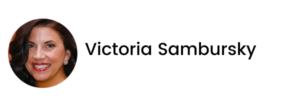
We live in an ever-changing world, and finding the right academic fit during high school may be challenging. A report from CNBC states, “today’s’ graduating students are getting a crash course in pivoting and changing their career outlook.” The good news? Once you find the right academic fit, it can open up a new world of possibilities and positively impact your future career. What will that educational path look like? Luckily there are many roads to a bright future. This article offers the latest tools, tips, and strategies to help you find the best academic fit and pathway, leading to a wealth of career opportunities.
Focus on your interests and strengths
During high school, you are probably developing a sense of where your interests lie and which subjects give you trouble. Does art come naturally to you, or does science capture your attention? Do you enjoy group projects, or do you like working solo? According to an article by the Houston Chronicle, answering these questions can help you begin narrowing down your potential fields of study or academic major. The report also recommends writing a list of possible careers that match your interests and abilities. For example, if you find you are most comfortable working with others, you are more of a team player. In that case, you may want to consider professions that involve group interaction instead of careers in lab research or coding, which require more alone time.
Perform informational interviews
If you can narrow down careers that match your interests, it’s time to write a profile for each, including job description, educational requirements, salary, and job outlook. Realistically look at each profile and see if performing the job duties pique your interest. Next, find someone who is already working in the field you are interested in, and talk to them about their experiences – also called an informational interview. Forbes explains, “these interviews are about gathering information and an excellent opportunity to get inside, nuanced information that you can’t easily find. They are also a chance to meet a new contact.” According to Harvard Business Review, you’ll get the most out of an informational interview if you keep it short and come prepared with a list of all the questions you want to ask about the career.
Consider every academic path
Once you figure out what interests you and the careers that support your passions, it’s time to explore the different educational requirements needed to achieve your goals. Your high school, college, or career counseling services usually offer guidance on these requirements. However, it’s also important to make sure these academic paths are right for you. For example, if you find that you thrive in an academic environment, a traditional four-year college could be your best option. However, if you are unsure about your career path or are not ready for a four-year college, a two-year college may be a better choice. These two-year programs allow the opportunity to find an academic major and move on to a four-year school. Or they can strengthen your skills and prepare you for a career with a two-year degree.
Many colleges also offer certificate programs for careers such as medical assistant or web developer. However, there are other routes to attain certificates. For example, Google offers programs in professions such as IT support. According to Google, 80 percent of learners in this certificate program report a career impact within six months, such as finding a new job or starting a new business. Enrolling in vocational or trade programs can provide a direct path toward specific jobs. These programs may be a good option for people who thrive on physical activity and more structure. Still uncertain about your academic fit or future? Consider trying assessment tests.
Take a deeper look into who you are
If you are still struggling to find the right academic fit or major, consider taking a deeper look at your strengths and limitations through a self-assessment or personality test. However, not all tests are created equal. Why? Each person has a unique cognitive orientation – or way they view the world. Depending on how you perceive and interpret your world ultimately impacts how you think and act. Current self-assessment tests leave out a person’s cognitive orientation, limiting their ability to accurately find their best academic fit.
Our COSEC (Cognitive Orientation and Social-Emotional Competency) assessment looks at the whole person – including their view of the world. Our test will help you find the underlying causes of your behavior to gain deeper insights into your decision-making processes, actions, and overall attitude. With this granular view, we can help you find which academic fit may be best for you. Using the above strategies and tools will not only help you find the right academic fit, but they can help open up a new world of possibilities and career paths to a bright future.

